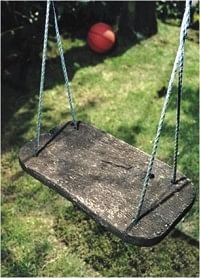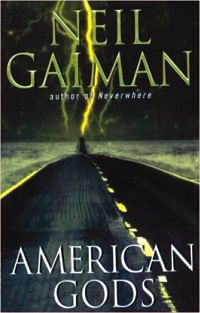
|
Home |
Issues | The Daily Star
Home
|
|
|
What about now? When I sit at my table and look out the window, I see clean streets, mowed lawns, and trees coming into bloom. When I sit at my table and look out the window, I see clean streets, mowed lawns, and trees coming into bloom.
The cars are washed. The people who walk their dogs always keep to the sidewalk. No one crosses the street just when the cars come barreling down at a hundred miles per hour. No one litters, no one spits. The kids who run amok once it's four in the evening don't smash windows. They have room to run around. Early in the morning on my way to school, I don't hear traffic. I don't hear the honking of cars and the cussing of the drivers as they hang their heads out of the windows and yell at everyone in the vicinity. I don't hear the merry tinkling of rickshaws as they plod through the congested streets of Dhaka. There are no hawkers peddling their goods from the sidewalk. There are no beggars with emaciated faces squished against your car window. This is a place straight out of the sets of Desperate Housewives. A clean-living, upscale, suburban area. Well-kept neighborhoods with their mowed lawns and bicycles on the driveways. Dads who play basketball and baseball with their kids. Moms who bake pies from scratch. This is a whole new world from Dhaka. Where apartment blocks tower over the streets. Where dustbins lie exposed on sidewalks. Where you can't appreciate the spring flowers because the smog is clogging your airways and making your eyes tear up. Where traffic makes it impossible for you to get anywhere in under half an hour (Dhaka. Rush hour. 'You rush, and it takes you hours to get where you want.' So true). That is Dhaka. That is the city people here know as the city with all the pollution and poverty. That is also the city I call home. Sure, the doughnuts here are warm and fluffy. Pizzas are baked oven-fresh. The food isn't adulterated with anything. There aren't power cuts. You can drink water out of the tap. You can step outside at any hour of the day and smell the cherry blossoms and the magnolias. The worst kind of crime that is featured on the evening news is who got kicked out from American Idol, and which old lady got her purse stolen while shopping at Main Street. There isn't any mugging and killing. Heated political debates don't result in rioting and 'ganjaam'. There is nothing, in essence, about living here. Nothing at all. If you don't count the loneliness, that is. If you don't count those moments of cluelessness where you look out and see all these people and you know that THOSE people own this country in a way you never will. They call this country home. Which you can't ever do. It's not that easy to cut ties to where you came from. So, even though I'm getting used to the mowed lawns and the strip malls, and the convenience of vacuum cleaners and dishwashers, I cannot help feel nostalgic for those Dhaka days. I can't help but wonder when I'll go home. Even though that is not an option for me anymore. Like it or not, I can't go back. And home is far, far away from here. By HU Bird brain!  WE all love birds, as long as they don't poop on us… (ahem). Birds are found everywhere, beginning from the Arctic to the Antarctic. Birds are usually sought to be dumb, but birds are smart enough to stand guard, as scientists say. First of all they can fly and no human can. So calling them dumb will just make the person more ironic. WE all love birds, as long as they don't poop on us… (ahem). Birds are found everywhere, beginning from the Arctic to the Antarctic. Birds are usually sought to be dumb, but birds are smart enough to stand guard, as scientists say. First of all they can fly and no human can. So calling them dumb will just make the person more ironic. Birds are social; they communicate using visual signals and through calls and songs, and participate in social behaviours including cooperative breeding and hunting, flocking, and mobbing. Birds do sound similar to human beings, innit? The way birds make their territory safe and evolve new ideas of survival makes me wonder if they are trying to take over human territory and take over the world… Well, that is just my imagination ofcourse. The high metabolic rates of birds during the active part of the day is energised by rest at other times. Sleeping birds often use a type of sleep known as vigilant sleep, where periods of rest are interspersed with quick eye-opening 'peeks', allowing them to be sensitive to disturbances and enable rapid escape from threats. Some birds have been widely believed to be able to sleep while flying, but that is just a prostulate. However, there may be certain kinds of sleep which are possible even when in flight. Some birds have also demonstrated the capacity to fall into slow-wave sleep one hemisphere of the brain at a time. A research was carried on birds called pied babblers, a species from the Kalahari desert of southern Africa that lives in groups of about seven, and it has revealed a rare example of apparently altruistic behaviour, in which individuals put themselves at a temporary disadvantage for the benefit of others. While the one bird forages for food, such as small snakes and scorpions dug up from the desert, other stands guard in a tree. This sentry bird goes hungry as it watches for predators, allowing its group members to concentrate on feeding. To let other members know that it is on guard, the sentry sings a “watchman's song”, and makes alarm calls if a predator is spotted. Bird calls and songs, are produced in a syrinx, and are the major means by which birds communicate with sound. This communication can be very complex; some species can operate the two sides of the syrinx independently, allowing the simultaneous production of two different songs Defence against predators is particularly important in closed habitats like forests, where ambush predation is common and multiple eyes can provide a valuable early warning system. This has led to the development of many mixed-species feeding flocks, which are usually composed of small numbers of many species; these flocks provide safety in numbers but reduce potential competition for resources Birds play prominent and diverse roles in folklore, religion, and popular culture. In some religions, birds may serve as either messengers or priests and leaders. Some birds have also been perceived as monsters, including the mythological Roc and the Mâori's legendary Pouâkai, a giant bird capable of snatching humans. Perceptions of various bird species often vary across cultures. Owls are associated with bad luck, witchcraft, and death in parts of Africa, but are regarded as wise across much of Europe. Birds are beautiful, good to hear and are very important. So next time think before you say “bird brain”! By Raida Kifait Book review American Gods  "This is a bad land for Gods" -Shadow. "This is a bad land for Gods" -Shadow.
Fantasy had never been one of my preferred genre of reading but with friends who divulged half their time in the pursuit of out-worldly adventures, the name of Neil Gaiman was one that recurred time and again in any discussions over the past few years. Be it for 'the stunning' The Sandman graphic novels or for the wonderfully magical tale of Stardust, Gaiman was someone who kept pressuring the sub-conscious, eager to be delved into. So decommissioned at home for six weeks, Gaiman finally got his chance to be read. And he didn't disappoint with 'American Gods.' The novel (I came across the 'authors preferred text' a reprinting that is 12000 words longer than the original version) tells the story of Shadow, a convict who has been released from prison two days early due to the untimely death of his wife Laura the woman whose memory had kept him through his imprisonment. But before Shadow can even make his way back home, he comes across the enigmatic Mr. Wednesday, who employs him as an all-round bodyguard. His rite of passage includes a fight with a leprechaun, but that's just the tip of the ice-berg. Shadow finds out a tough secret about his wife and embarks along with Wednesday on a soul-searching trip across the vast American Midwest. Wednesday warns him that a battle is coming a huge, titanic struggle for the very soul of America and that they are in its very path. It is then that Shadow learns that Wednesday is so much more than he appears. He is infact an old God, one who went by the name of Odin, the all-Father who is roaming America rounding up his forgotten fellows in preparation for an epic battle against the upstart deities of the Internet, credit cards, television, and all that is wired. That in essence is the battle between the Gods. Armed only with some coin tricks and a sense of purpose, Shadow travels through, around, and underneath the visible surface of things, digging up all the powerful myths Americans brought with them in their journeys to this land as well as the ones that were already here. The plot is magically inventive as it treks its way across America. From Chicago to Rhode Island, and Seattle to the magical town of Lakeside, Shadow's journey takes him across the back roads of America. The people he meets are gritty, and the gods are even grittier. Through his outsider's vision (Gaiman is british) but insiders knowledge, (he lives in America) Gaiman paints a picture of America that transforms the mundane into that which is magical and mythical. His characterization is brilliant and both the Gods and the people we meet will leave a lasting impact. And at the end, there is a plot twist to satisfy the most ardent con-game fan. All in all, American Gods is a fantastic journey about loss, discovery, realization, misdirection and of course magic. Don't miss it. By Quazi Zulquarnain Islam |
|
| home
| Issues | The Daily Star Home © 2008 The Daily Star | |